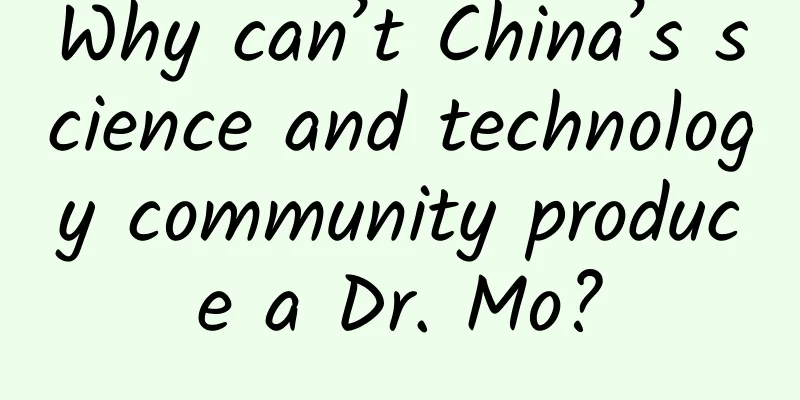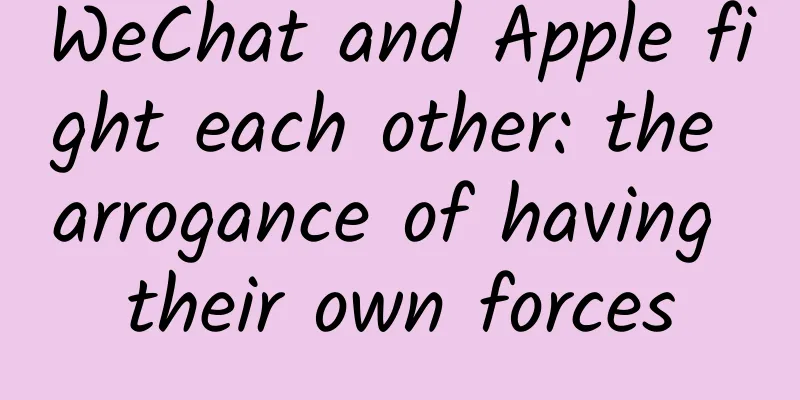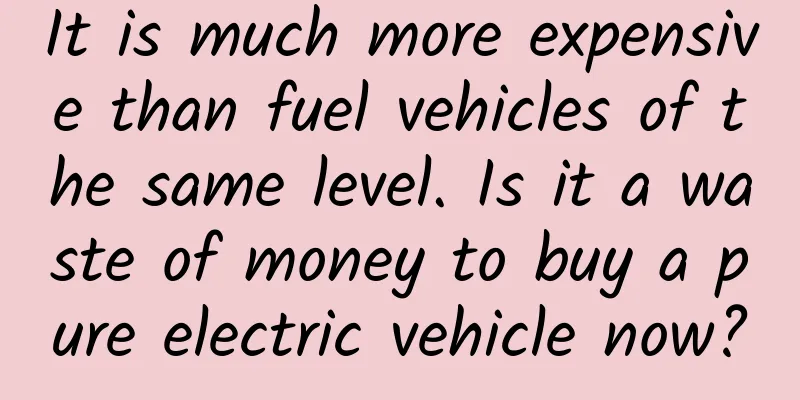Why can’t China’s science and technology community produce a Dr. Mo?

|
Those who don't know Dr. Mossberg is still commenting on the quarrel between Luo and Wang, you can stop talking now. Dr. Mossberg (Walt Mossberg) joined the Wall Street Journal in 1970, and switched from being a political reporter to a technology reviewer and reviewer in 1990. This transformation made him the "Dr. Mossberg" of today. He is one of the most influential technology media people in the American technology industry, and he can be regarded as the ancestor of master-level technology reviews. He is the most trusted media person of Steve Jobs, and also his external think tank on products. He is the only one who can see the real Apple products first outside the Apple team. Most of the products of the tech giants are proud to be reviewed by Dr. Mo, even if the comments are not good. Dr. Mo's interview with Bill Gates and Steve Jobs, two "gods" in the tech world, has become a historical moment. What further proves Dr. Mo's influence is that his review of a product can influence the stock price of a company or an industry. After he expressed his optimism about Cube in 2000, Apple's stock price soared by 10%. His opinions have made tech giants make changes in their products more than once, including the arrogant Microsoft and Apple. Dr. Mo's success in his "career" of technology reviews is enough to overturn many people's current misunderstandings about reviews. Especially after the "first live quarrel in China" between Wang Ziru and Luo Yonghao, many people have commented on Wang Ziru, Luo Yonghao, or the technology review industry, but I do not agree with many of the views. One view is that technology reviews should be objective. Wang Ziru's Zealer team claims to be objective, independent and third-party, and Luo Yonghao seized on this point of "objectivity" - in fact, when Zealer proposed "objective" reviews, it had already dug a hole for itself, because real reviews are never objective. The "review" of the review will inevitably carry its own opinions, although this opinion may be due to conflicts of interest, knowledge background or personal prejudice, but if the review has no subjective opinion, the review is dead, and it is no different from the manufacturer's draft of Zhongguancun Online or the data reports customized on demand by some institutions with clear prices. Dr. Mo never claims to be objective and independent. He believes that reviews are different from objective and neutral news reports by journalists. "For more than ten years, I have tried every product myself. I don't read the introductions and press releases of those manufacturers. I only test and use them from a personal perspective. I don't care about objectivity, I just care about treating every product fairly, and then telling readers my personal experience and telling them the differences of the products. Readers pay to read my reviews just to see my point of view, not the specious neutrality." (Quoted from Sina Technology Silicon Valley reporter Zheng Jun's report in 2012). He figuratively compares doing reviews to writing movie reviews. Everyone can have completely different experiences with a movie, and the same is true for products. Dr. Mo just tells everyone "what I like, what I don't like, what are the advantages and disadvantages of the product, and let users decide whether to buy it." I have read many of Dr. Mo's reviews. In his fluent writing, there is no piling up of parameters, no professional knowledge popularization, but just pure transmission of the user experience. Although it is not a video, it can bring an immersive impulse that makes you want to get it and try it out immediately. All this has nothing to do with objectivity. Another point of view is that a group of people "outside the industry" or "industry miscellaneous" people cannot do a good review, and it is wrong to comment on the products made by people who have deep industry accumulation (10,000 words omitted here). In a WeChat group, I saw an industry insider who makes smart TVs challenged a media person and said, "You will never be able to argue with me about smart TVs." The problem is that the evaluation itself is very diverse. There are data-oriented evaluations for reports, bottom-level analysis evaluations for disassembly, and popular science evaluations such as those done by Wang Ziru. Of course, there are also experiential evaluations from the user's perspective like Dr. Mo. Not long ago, the website "What's Worth Buying" also launched a crowd testing platform to try to use crowdsourcing to do product evaluations. Different evaluations are aimed at different audiences and have completely different and more business models. Obviously, not all reviews require a professional background. Just like white-box, gray-box, and black-box testing in software engineering, if you are distracted by parameters, sales, or products and stories (Xiaomi’s usual tricks), you may not be able to restore the real experience. Dr. Mo never reads instructions or press releases before reviewing. His reviews are for ordinary people. Based on this, the view that non-professionals cannot do a good review is untenable. Dr. Mo is a current affairs reporter. Wang Ziru is oriented to both users and professionals, and he is doing "white box evaluation" with professional machines + data analysis + disassembly design reverse deduction + third-party laboratory reports. However, as the evaluation soul of Zealer, he personally takes part in "black box evaluation" from the perspective of user experience every time. It is naturally difficult to balance different roles when switching between them. If he only does what Dr. Mo does, and does not question the design of Hammer and other "industry matters", it may not be so bad. If he only does data-driven "white box testing", it would be good to make a lot of money quietly like AnTuTu. It is indeed difficult for Wang Ziru to switch freely between different roles and balance different audiences. However, since English teachers can make mobile phones, why can't those who learn English do evaluations? There is also a common view that the business model of evaluation is very simple: taking money to help companies say good things, or say bad things about opponents, and act as a mouthpiece. If you accept strategic investment without taking money, there will also be suspicion of interest endorsement. This boring topic has been discussed since the first day of the emergence of modern media, especially technology media. Facts have proved that companies and media do not only have a "patronage" relationship, and the media is not a "black or red" public relations model as rumored. I will not expand on it here. Back to the evaluation, corporate public relations is not a clear-cut distinction between either saying good things about yourself or saying bad things about your opponents. In the mobile Internet era, when "attention" is scarce, some products are evaluated at a certain stage just for attention, or to find seed users, or the advice of opinion leaders. Companies are increasingly tolerant of evaluations, and pre-sales, crowdfunding, crowd testing, e-commerce and community models have emerged one after another. There are many new models to be explored and new markets to be opened up - it is definitely not about taking money to say good things or bad things. Dr. Mo does not make a profit by collecting money from others. In decades of evaluation, Dr. Mo has never asked for any of the products he reviewed. He bought many of them himself or sent them back after evaluation. He never asked for labor fees or company reimbursement of travel expenses (travel expenses). Although he is subjective, he is "purely independent". Almost no company in the Chinese evaluation industry can do this. Dr. Mo is a master, so Wang Ziru will not ask Luo Yonghao to reimburse his train ticket. Another point is that if there is no conflict of interest between third-party reviews and companies, there will inevitably be conflicts of interest. In China, if your review mentions the shortcomings of certain manufacturers' products - which may be subjective and you don't like, you will be questioned about your motives: Did you receive money from your competitors? Do you want to get my consulting fees? This view is even more deeply rooted in the technology review community and is harmful to people. Luo Yonghao and Wang Ziru have gone from mutual admiration in the past to bloody battles today, which vividly reflects the contradiction between companies and reviewers. However, you can look at the attitude of Steve Jobs, the only master that Luo Yonghao admires, towards Dr. Mo's "negative review". "When Apple launched MobileMe in 2008, I criticized it mercilessly in my review. After the article was published, Jobs called me and said in a low voice, 'Walter, I read your review. I'm sad that you said that, but I think you're right. Mobileme does need to be rebuilt. Thank you.' Later, according to media reports, Jobs called the MobileMe team to his office and denounced them for 'tarnishing Apple's reputation' and 'disappointing our old friend Walter.' The furious Jobs then replaced the head of MobileMe on the spot." (Quoted from a 2012 report by Sina Technology Silicon Valley reporter Zheng Jun). I don't know how many problems Luo Yonghao found with the Zealer review and how much he will improve the Hammer - there is no perfect product in the world, but from last night's battle, Luo Yonghao has regarded Wang Ziru, who "blackened" the Hammer, as an enemy and wants to kill him as soon as possible, even if it means killing 10,000 enemies and injuring 3,000 of himself. There are many entrepreneurs who are prejudiced against review agencies like Luo Yonghao. I have always been curious about why there is no Dr. Mo in China. Our technology started late but has great potential. Domestic mobile phones have defeated overseas brands. Lenovo has made multiple reverse acquisitions of overseas giants. Internet natives have surrounded the local market. We hope to take off the "Made in China" hat and change it to "Created in China" tomorrow. It seems that technology is becoming increasingly powerful, but we cannot produce a Dr. Mo. This is a loss for the technology media and the entire technology community. After Wang Ziru, I look forward to the emergence of Dr. Mo in China. As a winner of Toutiao's Qingyun Plan and Baijiahao's Bai+ Plan, the 2019 Baidu Digital Author of the Year, the Baijiahao's Most Popular Author in the Technology Field, the 2019 Sogou Technology and Culture Author, and the 2021 Baijiahao Quarterly Influential Creator, he has won many awards, including the 2013 Sohu Best Industry Media Person, the 2015 China New Media Entrepreneurship Competition Beijing Third Place, the 2015 Guangmang Experience Award, the 2015 China New Media Entrepreneurship Competition Finals Third Place, and the 2018 Baidu Dynamic Annual Powerful Celebrity. |
<<: TCL Zhao Yuying: Building a TV Game Ecosystem with Partners
Recommend
Master super search skills from scratch in 21 days
Gifted Mission-How to Live a Powerful and Free Li...
If centipede poison is used to poison centipedes, will the centipede be killed by the poison? | Expo Daily
Your best "insider" in the scientific c...
Does drinking coffee cause osteoporosis? How to drink coffee healthily? Click here to read →
Author: Ruan Guangfeng, Director of the Science a...
A guide to designing splash screen ads for the gaming industry!
The splash screen ad that appears in the few seco...
Teachers’ Day is here again. Why do people like to wish teachers “have many students all over the world”?
Respecting teachers is a traditional virtue of th...
Can Panasonic air conditioner technology make a comeback?
"Start-up in seconds, powerful cooling and h...
Do girls have any physiological reactions when kissing? How does it feel when a girl kisses you?
Kissing is a way for boyfriends and girlfriends t...
Shanghai General Motors: Work Secretary [WeChat Enterprise Account Case]
As an information announcement platform for the p...
Daily Fresh Product Analysis
With the development of the Internet, many servic...
Grasshopper "daughter kingdom": only females, can give birth to offspring, and live well | Nature Trumpet
Welcome to the 10th issue of the Nature Trumpet c...
How to operate a new product?
This problem is universal, and I believe every op...
Price inquiry for customized Simao prenatal education mini program. How much does it cost to customize Simao prenatal education mini program?
In order to better penetrate into various industr...
In-depth: Momo, Weibo and Kuaishou, the three video giants will eventually face off
Weibo has a market value of 17.2 billion yuan, Mo...
How did the ancients observe the night sky? Ancient Observatory: Decoding the Starry Sky for 500 Years
Have you ever looked up at the starry sky and wan...









